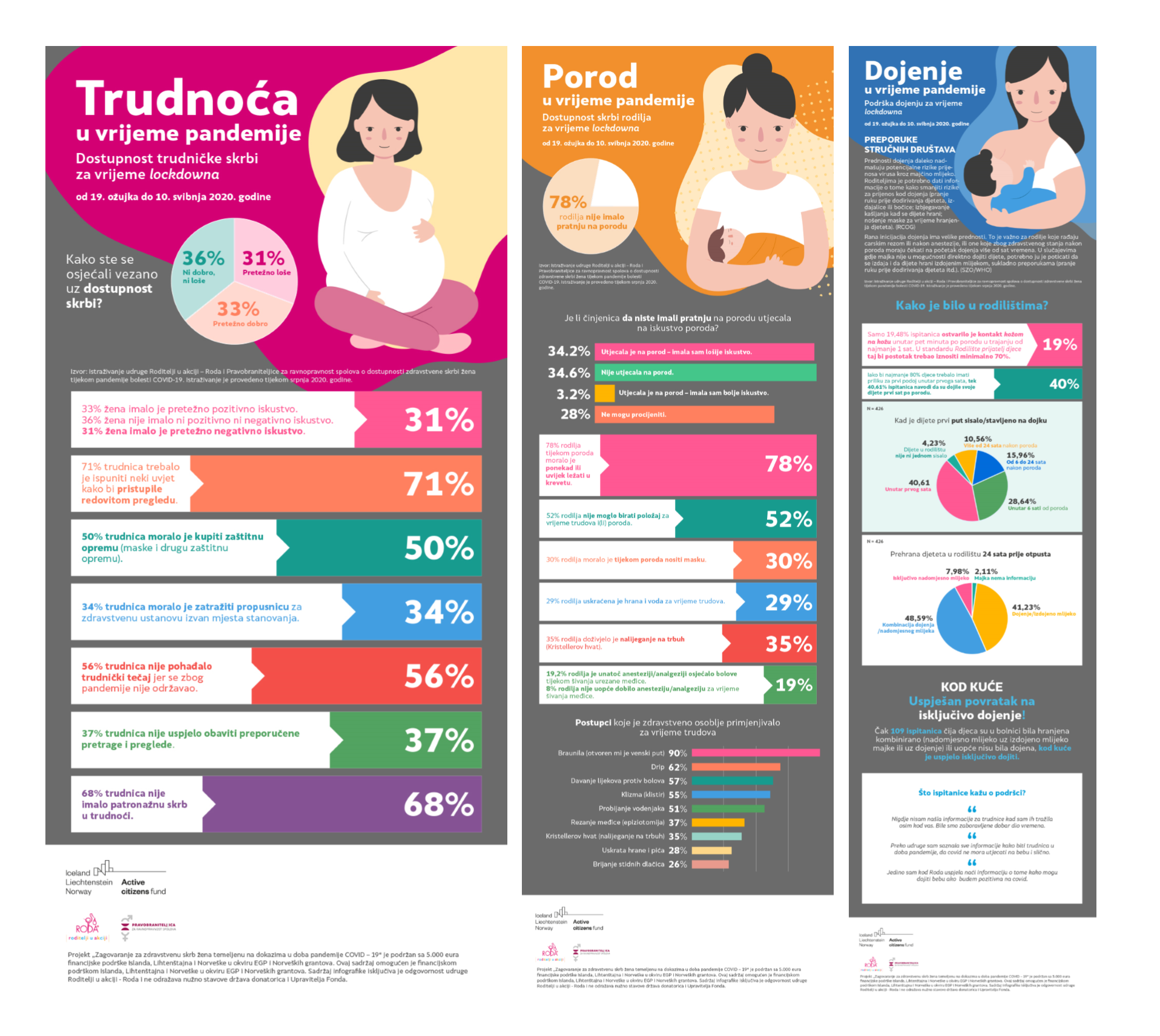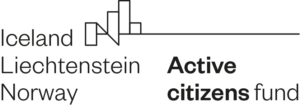AD HOC: Parents in Action RODA – Advocacy for Evidence-Based Women’s Healthcare During the COVID-19 Pandemic
Posted 26.11.2020.

Crisis situations often open up new ideas and insights about the needs of community members, and when ways to realize them are found, projects emerge that are talked about for a long time. One such project is the ad hoc action project of the Roda Association, which aimed to strengthen the advocacy role of civil society organizations in the field of women’s reproductive health during and after the COVID-19 pandemic. The project’s impact highlights the importance of networking and intersectoral cooperation on topics that concern all members of the community.
The Roda Association successfully completed its ad hoc action project. Advocacy for evidence-based women’s healthcare during the COVID-19 pandemic is a project that aimed to strengthen the advocacy role, or “watchdog” position, of the Association in the field of women’s reproductive health during and after the COVID-19 pandemic.
The Roda Association conducted qualitative research, a situational analysis, and drafted a thematic report titled “Research Results of the Parents in Action Association and the Ombudsperson for Gender Equality on the Availability of Women’s Reproductive Healthcare During the COVID-19 Pandemic.” The full thematic report is available on the Roda portal. Additionally, a summary in English is available at the same link.
As part of the ad hoc project, the Roda Association participated in drafting a submission to the Working Group on Discrimination Against Women and Girls in Laws and Practices of the Office of the High Commissioner for Human Rights, titled “Sexual and Reproductive Rights of Women and Girls in Crisis Situations.”
Furthermore, the Ombudsperson for Gender Equality, Višnja Ljubičić, as a project partner in coordination with Roda, sent a letter to the Ministry of Health and the Croatian Institute of Public Health regarding accompaniment during childbirth during the COVID-19 epidemic.
As part of the project, three infographics were created based on the analysis of surveys and guidelines. The infographics on pregnancy, childbirth, and breastfeeding during the pandemic contain key findings gathered through surveys.
An online conference for the project “Availability of Women’s Healthcare During the COVID-19 Pandemic” was held, with nearly 70 participants from institutions, professional societies, and organizations advocating for women’s reproductive rights. The online conference was organized in partnership with the Roda Association and the Ombudsperson for Gender Equality.
The conference was the first public presentation of the research results conducted in July on a sample of approximately 1485 women who sought healthcare in the fields of medically assisted reproduction, care for pregnant women, mothers, and postpartum women.
A range of stakeholders were involved in the project implementation: Women – pregnant women, mothers, and women with experiences in the healthcare system during the coronavirus epidemic, the Ministry of Health of the Republic of Croatia, professional societies such as the Croatian Society of Gynecologists and Obstetricians, the Croatian Society of Perinatologists, directors and heads of gynecology departments in Croatian maternity hospitals, the Croatian Medical Chamber, the Croatian Chamber of Midwives, the Croatian Chamber of Nurses, women’s rights organizations in Croatia, international institutions dealing with the protection of women’s reproductive rights, members of the National Breastfeeding Commission at the Ministry of Health, the National Commission for Medically Assisted Reproduction, and the media.
A positive effect of the ad hoc project is that more people than expected participated in online activities, which resulted in the inclusion of relevant stakeholders in the field of healthcare in Croatia.
An unexpected positive effect of the project is the opening of new topics in the field of women’s reproductive health that Roda had not previously been particularly active in, such as the decreasing availability of women’s healthcare through HZZO (Croatian Health Insurance Institute) and the growing trust of women in private practices.
“The pandemic has shown that the more vulnerable certain groups of women and children are, the more their rights to accessible and adequate healthcare will be undermined. This insight further motivates us to develop new activities and conduct new projects based on the achieved results, but also to continue advocating for the improvement of the healthcare system for reproductive health care for women through volunteer engagement.” says the Roda Association.
